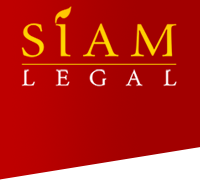Disinheritance from a Will
The Civil and Commercial Code generally provides two categories whereby a testator may disinherit one of his or her statutory heirs from a will. According to Section 1608, the testator “may disinherit any of his statutory heirs only by an express declaration of intention… by will” or “by writing deposited with the competent official.” Furthermore, “the identity of the disinherited heir must be clearly stated.” However, Section 1608 also provides for a more prickly situation whereby an heir can be disinherited if a testator has “distributed all his estate by will, all his statutory heirs who are not beneficiaries under the will are deemed to be disinherited.” Section 1608 leads to legal questions as to when a testator is considered to have distributed all of his estate by will.
In Thai Supreme Court Decision No. 9599/2553, Plaintiff was the oldest of eight children of the decedent. Plaintiff filed suit to force Defendants, who were his sisters and administrators of the decedent’s estate, to divide a plot of land in Bangkok bordering along Soi On Nuch into eight plots for each heir or to publicly auction the land and divide the proceeds with one-eighth going to Plaintiff in an amount not less than 2,015,000 baht. Defendants claimed that Plaintiff was implicitly disinherited from the decedent’s will according to Section 1608, since decedent had disposed of her entire estate without leaving anything to Plaintiff. Regarding the will:
- Articles 1 through 7 of the will disposed of decedent’s estate.
- Article 7 specifically stated that all immovable property not specifically disposed of in Articles 1 through 6 would be devised to the six heirs specifically listed in Article 7.
- Plaintiff was not listed as one of the six in Article 7 nor was he a specific beneficiary in Articles 1 through 6.
- Plaintiff disputed only Article 5 of the will that dealt specifically with the land along Soi On Nuch, which Plaintiff argued was not completely disposed of and therefore fell into intestate pursuant to Section 1620 of the Code.
The Court ruled in favor of Plaintiff holding that Article 7 of the will clearly referred to only that property in which decedent was entitled to half as the legal spouse of her husband. However, the land along Soi On Nuch under Article 5 was decedent’s own personal property. Article 5 only stated that the property was to be publicly auctioned in order to pay off the outstanding mortgage to the bank. It did not mention specifically as to how any remaining proceeds would be distributed or what to do if the land was not auctioned. Furthermore, the mortgage on the land was already paid off before decedent’s death, which made Article 5 an ineffectual clause according to Section 1699 of the Code. Therefore, the Court ruled in favor of Plaintiff on the grounds of both Sections 1620 (property not addressed by will follows into intestate) and 1699 (property disposed of under an ineffectual clause of a will falls into intestate).
In reflection, the probation of a will can be particularly complicated and emotionally exhausting matter, even more so if one decides to go about it on one’s own. In order to maximize a favorable result, it is advised that anyone with possible claims to an estate either by will or intestate consult with competent legal counsel in order to determine one’s rights and to assist in pressing one’s claims in probate court.
Category: Civil and Commercial Law, Thai Will and Testament
About the Author (Author Profile)
Siam Legal is an international law firm with experienced lawyers, attorneys, and solicitors both in Thailand law and international law. This Thailand law firm offers comprehensive legal services in Thailand to both local and foreign clients for Litigation such as civil & criminal cases, labor disputes, commercial cases, divorce, adoption, extradition, fraud, and drug cases. Other legal expertise of the law firm varied in cases involving corporate law such as company registration & Thailand BOI, family law, property law, and private investigation.











